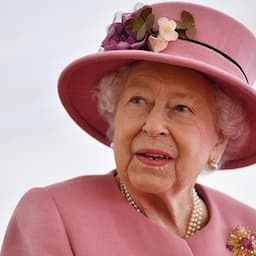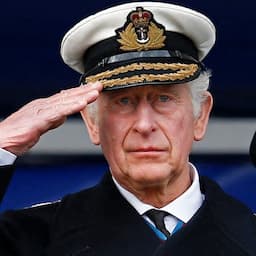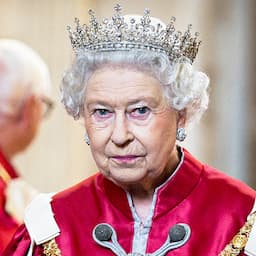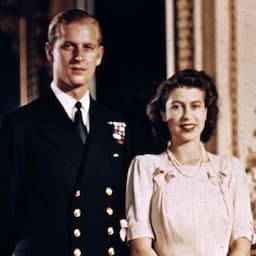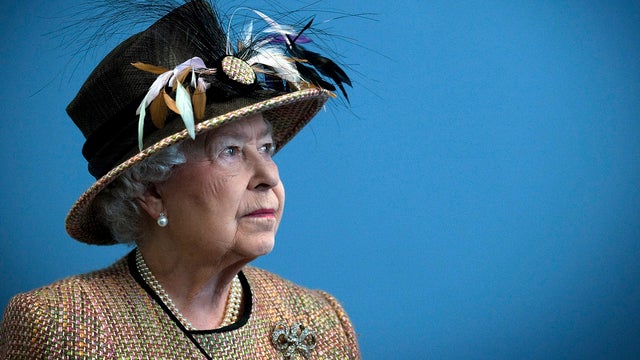Queen Elizabeth served more than 70 years on the throne.
Queen Elizabeth II, the United Kingdom's longest-reigning monarch, has died. She was 96.
"The Queen died peacefully at Balmoral this afternoon," Buckingham Palace announced in a statement on Thursday. "The King and The Queen Consort will remain at Balmoral this evening and will return to London tomorrow."
Concern over Her Majesty's health began on Thursday morning when Buckingham Palace announced, "Following further evaluation this morning, The Queen’s doctors are concerned for Her Majesty’s health and have recommended she remain under medical supervision."
The queen's family, including her four children, Prince Charles, the new King, Princess Anne, Prince Andrew, Duke of York, and Prince Edward, Earl of Wessex, grandchildren Prince William and Prince Harry, and several other members of the royal family, all traveled to Balmoral Castle in Scotland amid the news of her declining health.
Her Majesty is survived by her children, along with eight grandchildren and 12 great grandchildren.
Born Princess Elizabeth Alexandra Mary on April 21, 1926, Her Royal Highness became an heir apparent to the British monarchy after her uncle, King Edward VIII, abdicated the throne. Elizabeth, whose parents were King George and Queen Elizabeth I (then the Duke and Duchess of York), attended schooling at home and became fluent in French as a child. At just 14 years old, Princess Elizabeth made her first radio speech during the BBC’s Children’s Hour as Britain entered World War II.
In 1945, Princess Elizabeth was named honorary second officer in the Auxiliary Territorial, a women’s branch of the British Army, where she was trained in driving and mechanics. Two years later, the 21-year-old royal announced her engagement to 27-year-old Prince Philip, her second-cousin twice removed. The royal couple tied the knot at Westminster Abbey on Nov. 20, 1947. The newlyweds welcomed their first child, Prince Charles, in 1948, and daughter, Princess Anne, in 1950. Queen Elizabeth and Prince Philip welcomed two more sons, Prince Andrew in 1960 and Prince Edward in 1964.
Queen Elizabeth took the throne at 25 years old, and was officially crowned during a 1953 coronation ceremony at Westminster Abbey. She cemented her new status with a seven-month tour of the Commonwealth, alongside Prince Philip.
Throughout her reign, Queen Elizabeth met with numerous world leaders, including 12 U.S. presidents, and made her first visit to the United States in 1957, where she was hosted by President Dwight D. Eisenhower. Her Majesty also worked with 15 British prime ministers over her decades on the throne, including Winston Churchill and Margaret Thatcher, Britain’s first female prime minister (the two had a longstanding contentious relationship).
Days before her death, Elizabeth made history again, accepting the resignation of former British Prime Minister Boris Johnson and appointing new Prime Minister Liz Truss. She requested that these official events take place at Balmoral Castle rather than Buckingham Palace for the first time in her reign. Truss is the third female British prime minister ever and the 15th prime minister to be appointed during Her Majesty's reign.
The monarchy gave an unprecedented peek into their daily lives with the 1969 BBC special Royal Family. The view of what had been a closely guarded sector of the royal family didn’t quell public criticism during a particularly turbulent period for the British economy. The 1970s was a time of activism and unrest in the U.K., resulting in protests over low wages, working conditions, equal pay, and the country’s first-ever postal workers strike.
Despite being under Queen Elizabeth’s rule, antiquated gender roles were slowly being dismantled in the U.K. Parliament passed the Equal Pay Act in 1970, but calls for reform across various circuits of the British government put Queen Elizabeth’s and her sister Princess Margaret's parliamentary allowances under scrutiny. In spite of the rocky period, the queen marked her Silver Jubilee (25 years on the throne) in 1977.
Throughout the ‘80s, and into the ‘90s, Prince Charles’ marriage to Princess Diana, and subsequent cheating scandal and divorce, dominated much of the global news about the royals, bringing on another trying period for the family.
By the decade’s end, three of Queen Elizabeth’s children ended their marriages. In 1992, a fire broke out in Windsor Castle causing £36.5 million ($47 million in U.S. currency) worth of damage. Queen Elizabeth paid taxes on her royal income to help cover the restoration fees.
In 1997, Princess Diana died in a car crash in Paris while being pursued by paparazzi while Queen Elizabeth was away from the palace on holiday shielding her grandsons, Prince William and Prince Harry, from the spotlight while they grieved the loss. “Our grandmother deliberately removed the newspapers, and things like that, so there was nothing in the house at all. So we didn’t know what was going on,” Prince Harry revealed in a BBC documentary commemorating the 20-year anniversary of Princess Diana’s death.
Amid criticism over her silence, Queen Elizabeth publicly addressed the tragedy five days after Prince Diana's death.
In late 2016, Queen Elizabeth -- who was the royal patron of more than 600 organizations -- dropped responsibilities for 25 bodies in order to lighten her workload. Duties for several organizations were passed to her grandchildren, including Prince William for the Amateur Swimming Association and Prince Harry for the Rugby Football Union and Rugby Football League. Meanwhile, Prince William's wife, Kate Middleton, was chosen to represent the royal family at the All England Lawn Tennis and Croquet Club in Wimbledon.
The queen has welcomed lots of great-grandchildren over the years, a total of 12, including William and Kate's kids, Prince George, Princess Charlotte and Prince Louis, as well as Harry and wife Meghan Markle's children, Archie and Lilibet Mountbatten-Windsor. Lilibet was named in her honor.
These past few years have been challenging for the royal family. In 2019, Prince Andrew resigned from royal duties following a controversial interview over his ties to the late financier and convicted sex offender, Jeffrey Epstein.
The next year, Harry and Meghan announced they too were stepping down from senior royal duties. They eventually moved to the U.S. and broke their silence to Oprah Winfrey in a bombshell interview about the hardships and scrutiny they faced within the royal family.
Not long after the interview aired, the queen's husband of 74 years, Prince Philip, died on April 9, 2021. He was 99.
Amid all this, Queen Elizabeth, who served a historic 70 years on the throne, continued making public appearances and kept up many of her royal duties right up until her death. But in February 2022, she tested positive for COVID-19 and canceled several virtual events to focus on her health.
"As Her Majesty is still experiencing mild cold like symptoms she has decided not to undertake her planned virtual engagements today, but will continue with light duties," the Palace said in a statement on Feb. 22. "Further engagements to be decided in due course."
In June 2022, she celebrated her Platinum Jubilee, marking 70 years on the throne. The queen had to sit out several of the week-long festivities due to her health and mobility issues, though she made a surprise appearance on the balcony of Buckingham Palace to close out the occasion. She also penned a thank you note for those who participated, writing at the time, "When it comes to how to mark seventy years as your Queen, there is no guidebook to follow. It really is a first. But I have been humbled and deeply touched that so many people have taken to the streets to celebrate my Platinum Jubilee. While I may not have attended every event in person, my heart has been with you all; and I remain committed to serving you to the best of my ability, supported by my family."
For updates on Queen Elizabeth's death, visit ET's ongoing coverage here.
RELATED CONTENT:
